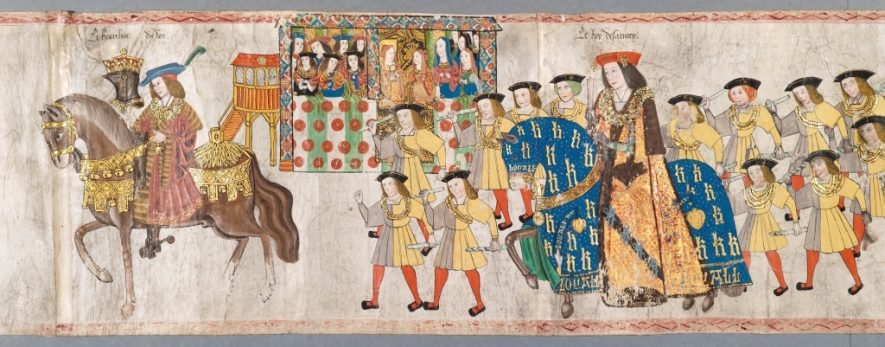Anastasiia Palamarchuk (Russian-Armenian University) on antiquarian narratives of Early modern period
On February 28, 2023, a lecture by Anastasiia Palamarchuk, Professor of the Russian-Armenian (Slavic) University, on the topic "From Orders of Precedence to Social Categories: Antiquarian Narratives of Early Modern Period" was held at the Department of History within the framework of the regular research seminar of the Centre for Historical Research and the Department of History.

Antiquarian historical writing, or uncritical historical knowledge of the early modern period, is of interest not only as an early methodology for the development of historical description and narrative, but also as an important evidence of the "peculiarity" of the late medieval and early modern worldview, as well as socio-political practices. Anastasiia Palamarchuk convincingly showed by the example of the development of the English tradition of historical writing that in the XVI-XVII centuries the "political" and "social" parts of the life of the English subjects began to separate. The political decisions of the king and his courtiers had started to be perceived as individual situational decisions (not as God's providence), and the increase in social categories in historical descriptions indicated the autonomization of the social sphere and the transformation of power relations within the polities. Thus, in the antiquarian historical writing of the early modern period, the political subjectivity of historical actors appears, as well as a more detailed and complex perspective of the historical and political processes.
The main genres of antiquarian historiography are constitutional treatises, chorographs, as well as heraldic treatises. However, according to Anastasiia Palamarchuk, there is another possibility of typologizing antique narratives: universalizing and locally oriented texts. The appearance of the latter especially interested participants: how does "regionality" gain importance in the construction of historical texts of early modern England, and also to what extent does it affect the change in socio-political practices and the very understanding of the English "community"? Anastasiia Palamarchuk drew the audience's attention to the fact that by the XVI century the importance of geographical boundaries in determining socio-political relations within the "Commonwealth" was not common: the boundaries of the community and the "orders of precedence" completely determined the political (or, better to say, social) hierarchy, in which the source of delegation of power was the king, and ultimately – God. Thus, the "orders of precedence" were a hierarchies of titles, which in turn determined the amount of land of the king’s subjects.
An important act of autonomization of the "social" was also the rejection of universalism in the historical narrative of antiquaries. By the XVII century, antiquaries refused to consider the universe (cosmos) in their historical descriptions, but focused more on the history of specific polities. Thus, Anastasiia Palamarchuk emphasized, the authors have boundaries in the narrative (semantic, not geographical,) and readers and contemporary researchers have the opportunity to compare the description of polities, as well as to study the languages of self-description. Antiquarian historical writing begins to study what is inside the polities, the socio-political structure of which was determined by the "orders of precedence."
Research Assistant
